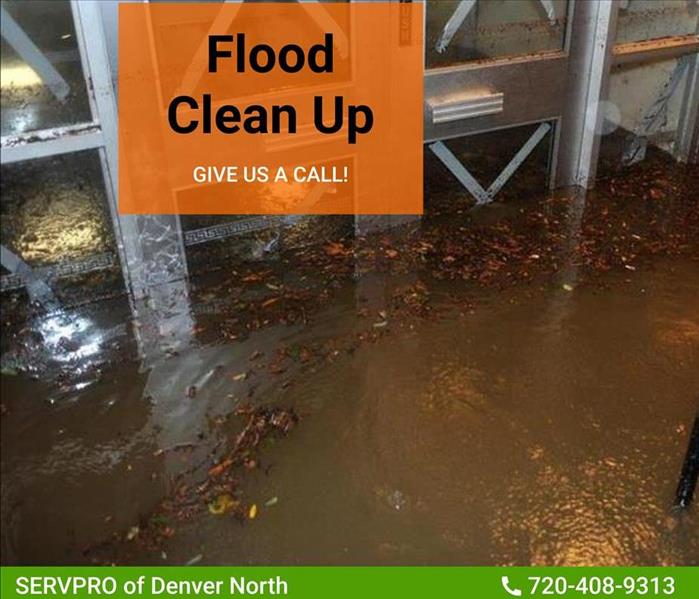Denver Floods: Types of Flooding in Denver CO
9/4/2021 (Permalink)
A flood is a type of natural disaster that causes severe flooding in low-lying areas and can occur anywhere, but typically occurs along coasts or rivers.
Flooding is usually contaminated with dirt and debris that seeps into homes as well as sewage and bacteria. The type of flooding that occurs depends on where the water is coming from.
Floods can be a huge problem in the Denver area, especially after an intense storm.
Flooding happens when water covers a large surface area and it comes from sources like rivers, streams, lakes or oceans.
Floodwaters can come from any natural or manmade source, and can be very damaging depending on the type of flood you have.
Floodwaters are divided into two categories: stationary floods and moving floods.
Moving Floods
A moving flood is a large volume of water that moves through an area at high speed like when a river gets out of its banks.
Floodwaters can be very dangerous because they may contain debris, chemicals and other pollutants.
Stationary Floods
A stationary flood is a large volume of water that covers an area like when rainwater collects in the ground or on top of buildings with nowhere to flow off to.
Floodwaters are not as fast-moving but still have the potential to be dangerous.
Floods are also caused by landslides, snow melts, dam breakage such as the case with Hurricane Harvey which was responsible for extensive flooding in Houston last year.
Floods are classified into two types: stationary and moving
Floodwaters can contain pollutants, debris, or chemicals that may be harmful to humans so it's important you have a Flood Cleanup Company come out right away.
We are proud to be the best flood clean-up and remediation company in the Denver area.
Our Flood and Water Damage Restoration Process
Since every flood and water damage scenario is a little different, each one requires a unique solution tailored for the specific conditions.
However, the overall water restoration process remains the same. The steps below detail our restoration process for the typical water-damaged property.
Step 2: Inspection and Damage Assessment
Step 3: Water Removal/Water Extraction
Step 4: Drying and Dehumidification
IICRC Training and Certification
We are IIRC trained and certified. The Institute of Inspection Cleaning and Restoration Certification (IICRC) certifies and sets the standards for the cleaning and restoration industries.
Our Professionals study IICRC standards and best practices in water restoration, fire restoration, mold remediation, carpet and upholstery cleaning, and other cleaning and restoration courses.
Let us help
https://www.SERVPROdenvernorth.com/contact/contactus
SERVPRO® of Denver North technicians are always on call 24-hours a day to respond to residential and commercial water damage emergencies.
Call us today at 720-408-9313.





 24/7 Emergency Service
24/7 Emergency Service
